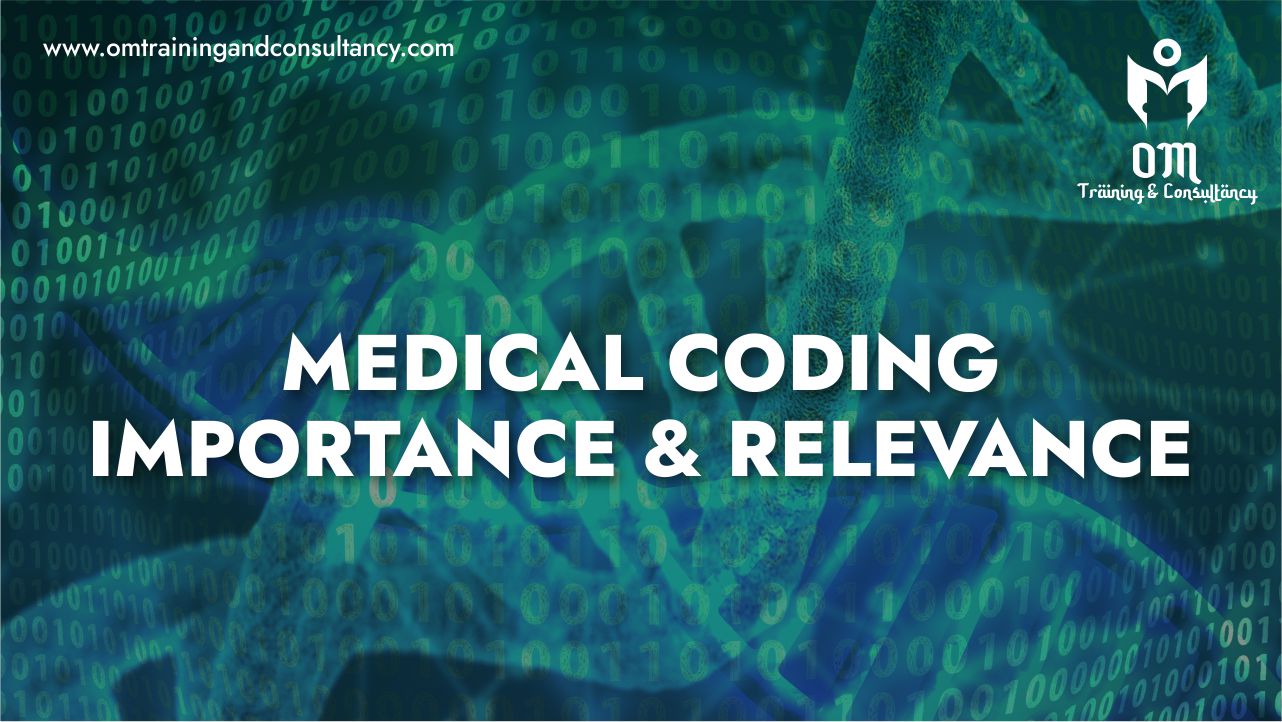Medical coding has successfully been able to create itself as a niche segment serving as a prerequisite for medical billing, filing and claiming reimbursement. It is the process in which a patient’s history covering his/her condition, diagnosis, prescription and procedures are converted into a set of alphanumeric codes. Further these codes are used to process claims.
With the increase of people opting for health insurances, the job demand in coding has already been increasing significantly.
Medical coding is the base for medical billing and the rest of the RCM process in the healthcare industry but what is it exactly
Importance of RCM & medical coding
A healthy revenue cycle has become essential for all healthcare providers in the light of increasing operational costs, demand for value based care and providing the best patient experience. Any typical RCM process consists of eligibility, coding, charge capture, claims submission, reimbursement, accounts receivable and patient collections.
Medical coding is the next and very important step after RCM. Coding, when done accurately, should be able to present the complete medical story of a patient. This valid record forms the basis for medical billing and insurance claims. While coding, the coder analyzes the codes representing the exact treatment/procedure provided to the patient. Based on these codes, medical billers submit claims to the payers (insurance providers or government programs such as Medicaid/Medicare) to receive reimbursement for the services rendered to the patients. Accuracy will nullify the chances of claim rejection that is troublesome for families that are depending on the amount for treatment and reimbursements.
Medical coding in Patient care
The information about diagnoses, treatments, procedures, medications and equipment and translates them into alphanumeric codes. This data comes from a range of sources, including transcriptions, medical notes, electronic records, lab results including blood work, urinalysis and pathology and radiologic assessments.
Medical coding professionals transfer these codes from the sources to medical billing systems and patient records.
Needless to mention, it’s a critical job, as it can indirectly affect medical care, particularly as it relates to insurance reimbursements. Coding is also critical for demographic assessments and studies of disease prevalence, treatment outcomes and accountability-based reimbursement systems.
Contractual compliance
Medical billing and medical coding fall under many state and federal guidelines. Perhaps the most significant is the Health Insurance Portability and Accountability Act (HIPAA). HIPAA protects patients and their rights requiring any medical practice or hospital to take safeguards to protect confidential patient’s personal information. It also covers electronic medical records and the International Classification of Diseases (ICD-10) uniform diagnostic codes issued by the World Health Organization (WHO).
Furthermore, medical practitioners are bound by contracts with insurance companies. Contracts spell out negotiated rates for various medical procedures and treatments. Accurate coding ensures that process abides by all the contractual terms and conditions
REGULATORY COMPLIANCE
The Health Insurance Portability & Accountability Act or HIPAA is a federal law that gives the compulsion to create and adhere to national standards for protecting PHI.
You have to keep compliance in mind on a daily basis when working within this field. The concentration and memory must be good to take safer decisions even in pressure.
HIPAA holistically covers patient confidentiality and also covers electronic medical records. Medical coders must ensure that the data they’re using is safe and isn’t consumed by any impostor.
Ensuring payment flow
Medical billing is an important component of practices, ensuring smooth operation of the revenue cycle. Medical billers have to understand different medical regulations and private and public insurance plan policies. They need specialized knowledge of claim follow-up, claim denial resolution, posting payments and bill adjustments, appeal submissions, and collections management. Efficient management of these components ensures improved revenue flow throughout the practice.
